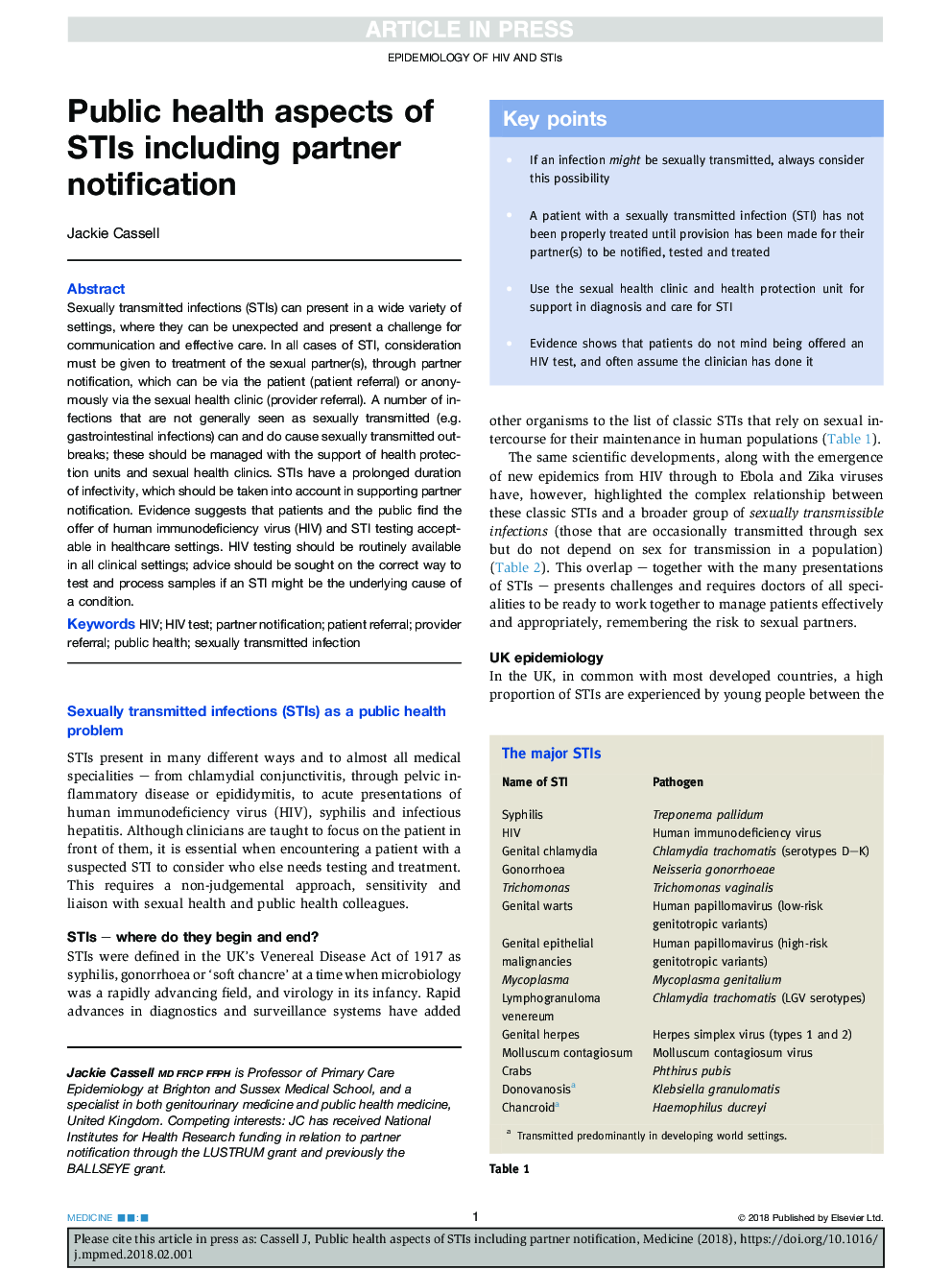| Article ID | Journal | Published Year | Pages | File Type |
|---|---|---|---|---|
| 8764022 | Medicine | 2018 | 4 Pages |
Abstract
Sexually transmitted infections (STIs) can present in a wide variety of settings, where they can be unexpected and present a challenge for communication and effective care. In all cases of STI, consideration must be given to treatment of the sexual partner(s), through partner notification, which can be via the patient (patient referral) or anonymously via the sexual health clinic (provider referral). A number of infections that are not generally seen as sexually transmitted (e.g. gastrointestinal infections) can and do cause sexually transmitted outbreaks; these should be managed with the support of health protection units and sexual health clinics. STIs have a prolonged duration of infectivity, which should be taken into account in supporting partner notification. Evidence suggests that patients and the public find the offer of human immunodeficiency virus (HIV) and STI testing acceptable in healthcare settings. HIV testing should be routinely available in all clinical settings; advice should be sought on the correct way to test and process samples if an STI might be the underlying cause of a condition.
Keywords
Related Topics
Health Sciences
Medicine and Dentistry
Medicine and Dentistry (General)
Authors
Jackie Cassell,
